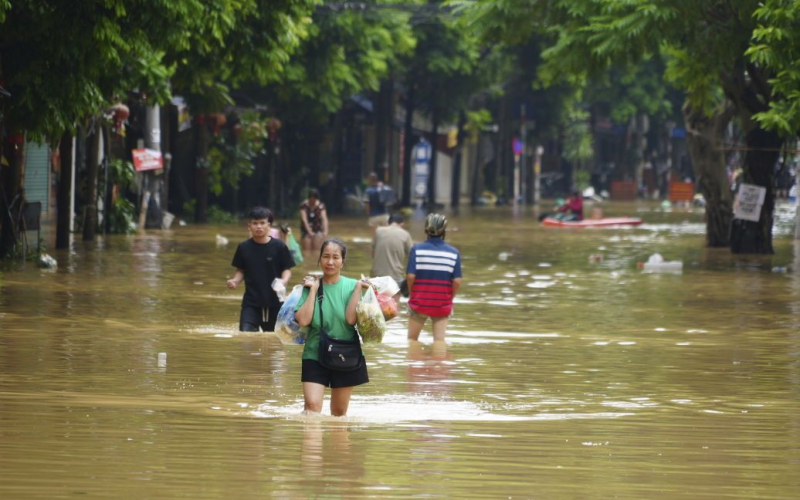
Wind speed reached 149 km/h and caused flash floods and landslides.
Typhoon Yagi hit Vietnam, killing almost 200 people and leaving more than 125 missing news.
Sky News reports this.
Typhoon Yagi was the most powerful to hit the Southeast Asian country in decades. The storm made landfall on September 7 with wind speeds of up to 149 km/h and caused flash floods and landslides.
According to the Vietnamese newspaper VNExpress, about 197 people were killed, 128 are missing, and more than 800 were injured.
The death toll peaked earlier this week, when a flash flood swept away the entire village of Lang Nu in Lao Cai Province in northern Vietnam on September 10.
Hundreds of rescuers began searching for survivors. As of the morning of March 12, 53 villagers were still missing.
Flooding in the capital Hanoi was reported to be the worst in 20 years, prompting mass evacuations.
Floodwaters from the Red River have subsided slightly, but many areas are still submerged.
People waded through knee-high, brown water to walk down one street. Some still wore bicycle and motorcycle helmets, leaving their vehicles on the road. Others floated along the road in small boats as the debris floated past. And one man pushed his motorcycle to dry land on an aluminum boat.
The Yagi weakened on September 8, but heavy rains continue and rivers remain dangerously high.
In Phu Tho Province a steel bridge over the Red River collapsed, dumping 10 cars and trucks along with two motorcycles into the water.
In the mountainous province of Khao Bang a bus carrying 20 people was swept away by a landslide into a flooded stream.
Meanwhile, in Thailand, at least At least two people have died and hundreds have been stranded after heavy rains swept through two northern provinces, causing rivers to overflow, inundating a community and triggering mudslides.
Experts say storms like Typhoon Yagi are becoming stronger due to climate change, as warmer ocean waters provide more energy to feed them. This leads to stronger winds and heavier rains.
Related Topics:
More News

